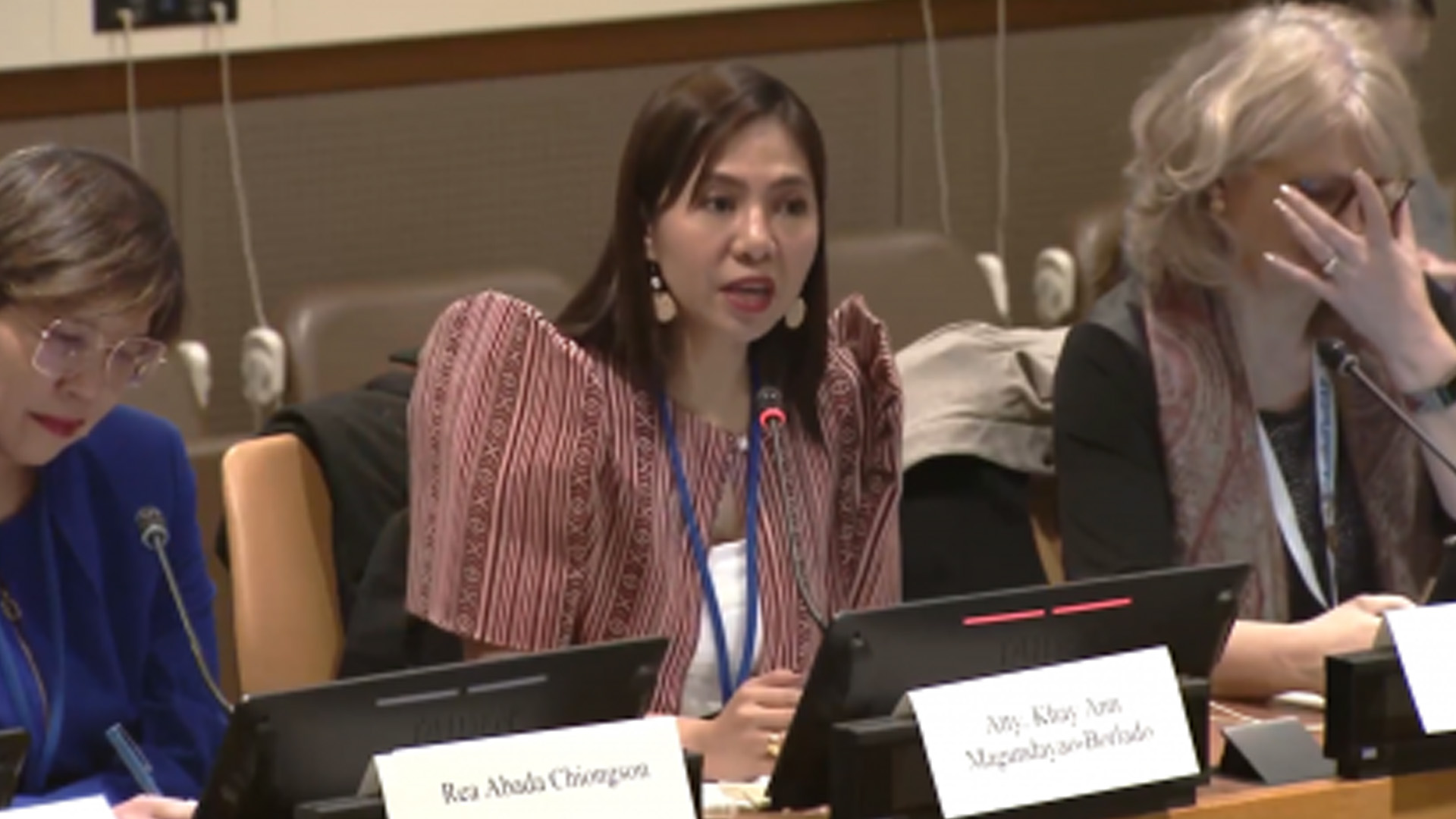Women’s rights should be taken into consideration when crafting a “gender-responsive” climate action plan, the Philippine Commission on Women said in an event in the United States on Wednesday (Manila time).
During the side event at the 68th annual Commission on the Status of Women (CSW68), PCW officer-in-charge Khay Ann Magundayao-Borlado said climate change disproportionately impacts women because of intersecting vulnerabilities from pre-existing structural gender inequalities.
Magundayao-Borlado called on the CSW member-states to strengthen inclusive decision-making to make sure “the voices of women and girls are heard and gender equality environment action is achieved.”
“The rights of women and girls must be at the center of climate action, advancing the rule of legal and policy frameworks and delivering a gender responsive just transition and often overlooked pathway is critical,” she said.
“Because women are most at risk of being left out of the process and benefits of a just transition, there is an urgent need to understand the linkages between women’s rights in the world of work and the transition to a more sustainable and low carbon economy, particularly on the structural barriers and the interventions that promote women’s equal opportunities and treatment at work,” she added.
To deliver a just transition, Magundayao-Borlado said women’s health, well-being, and livelihoods must be protected, adding that they should also be provided with more opportunities through the creation of green jobs and the promotion of entrepreneurship.
Magundayao-Borlado said nations must invest in education, skills, capacity- building, and health and social protection services that engage and support women as “active agents of change.”
“We must ensure effective financial flows to the regions and populations that need it the most,” she said. “Finally and in order to achieve this, we need better quality gender disaggregated data to support decision making in (the) transition plan. I look forward to discussions to be had today to deliver a gender responsive and inclusive just transition for all.”
Citing the 2023 Gender Assessment of Climate Related Legal and Regulatory Frameworks in the Philippines by the International Development Law Organization (IDLO), Magundayao-Borlado stressed the need to enhance existing climate and environmental laws by incorporating gender considerations.
She said gender responsive approaches and policies and laws must be integrated, in the context of disasters and climate change and advanced social justice, economic equality and environmental sustainability.
“This intersectionality of vulnerability results in climate change affecting women and girls in different ways than boys and men. Women are expected to be most severely affected due to their high representation in sectors, particularly susceptible to climate change impacts,” Magundayao-Borlado said.
“Exposure to these hazards amplifies existing gender inequalities and poses a serious threat to women’s livelihoods, health and well-being. Considering gender equality and climate action is, therefore, essential to building inclusive and just transition to resilience,” she added.
Magundayao-Borlado said a just transition presents an important opportunity for a transformative agenda for the diversity and inclusion of gender equality in the workplace.
She noted that in the Philippines, the government is making sure that the recently-adopted National Adaptation Plan and Nationally Determined Contribution Implementation Plan are gender responsive and guarantee inclusive and equal representation in the decision-making process.
“Legal and policy frameworks ensure that the transition to a more climate resilient sustainable and equitable economy benefits everyone, including women and marginalized groups,” she said.
Magundayao-Borlado participated in the CSW68 side event organized by the IDLO, with the theme, “Gender Equality in Climate Action: The Role of Legal and Policy Frameworks in Delivering a Gender-Responsive Just Transition”. (PNA)







